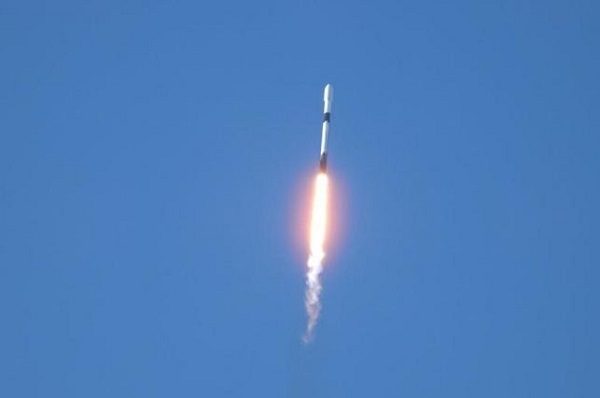Seoul, (Asian independent) South Korea’s first lunar orbiter has entered its planned trajectory towards the moon, the country’s Science Ministry said Friday, in a historic first step towards space exploration.
The Korea Pathfinder Lunar Orbiter — also known as Danuri, a portmanteau of the Korean words for “moon” and “enjoy” — was travelling on a ballistic lunar transfer trajectory as of 2 p.m. on a trip to the moon that could take four and a half months, Yonhap reported.
South Korea confirmed that the orbiter was generating power with its solar panels and all onboard devices were functioning properly after being launched on a SpaceX Falcon 9 rocket from Cape Canaveral in the US.
Danuri also made its first communication with a Deep Space Network antenna of NASA in Australia’s Canberra, at 9.40 a.m. (Korean time), according to the Ministry of Science and Information and Communications Technology (ICT).
“The Danuri will be recorded as the first step in the history of South Korea’s space exploration. There is still a long road ahead for Danuri, including entering the lunar orbit and conducting its yearlong mission,” Minister of Science and ICT Lee Jong-ho said in Cape Canaveral after observing the launch.
The launch, which was postponed for two days due to a maintenance issue with the rocket, marked South Korea’s first space mission to travel beyond Earth’s orbit and its first lunar observation mission.
It’s mission is to measure terrain, magnetic strengths, gamma rays and other traits of the lunar surface using six onboard instruments during its year-long mission, starting in late December.
The orbiter will also identify potential landing sites for future lunar missions.
South Korea has set the goal of sending a lunar landing module to the moon in 2031 as President Yoon Suk-yeol has pledged to invest in opening a space economy era and to support the aerospace industry through the establishment of an aerospace agency.
In June, South Korea launched its first homegrown rocket, Nuri, becoming the seventh country in the world to develop a space launch vehicle that can carry a satellite of more than one tonne.
The Korea Aerospace Research Institute (KARI), which oversees the lunar orbiter project, has undergone developments of deep-space internet protocol design, landing device design and technology development, lunar exploration rover and nuclear batteries for future landing missions.
“We have to take steps, but I think it’s possible to go to the moon with our own capabilities,” KARI President, Lee Sang-ryool said in November.
NASA has been deeply involved in the South Korean mission after signing a formal agreement with the KARI to work together in 2016. The US space agency has shared experience in designing the missions and will provide access to the agency’s Deep Space Network antennas around the globe to track the spacecraft.
Kim Eun-hyeuk, a project scientist at the KARI, said that exploring the realm of deep space without exploring the moon is impossible, adding that “many Asian countries, such as Japan, India and China, have already started space exploration programmes, and the best candidate (for immediate exploration) is the moon.”
As of now, only six countries and regions — the US, China, Japan, India, the European Union and the former Soviet Union — have succeeded in either lunar landings or lunar orbiter explorations.
If Danuri reaches its intended destination in late December, South Korea will become the seventh country to reach lunar orbit.
Experts say that the Danuri mission will provide critical insights into the challenges of deep space exploration and further bolster the space capabilities South Korea has gained fast in recent years.
As part of the project, KARI has built South Korea’s first homegrown deep space antenna in Yeoju, Gyeonggi Province, which is expected to be used in future space exploration projects.
Bang Hyo-choong, an aerospace engineering professor at the Korea Advanced Institute of Science and Technology, compared the mission to “the experience of a person travelling to a foreign country for the first time.”
“South Korea does not have any prior experience in conducting interplanetary space missions, so the Danuri project, especially the aspect of its ballistic lunar transfer travel method, will provide new experience and insight regarding manoeuvring spacecrafts in space,” Bang said.








